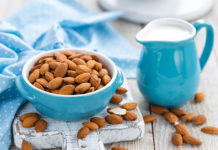It’s well understood that taking probiotics on a regular basis can significantly improve digestive health, including reducing bloating and alleviating symptoms associated with irritable bowel syndrome (IBS). Recent new studies suggest that probiotics can also be helpful in the treatment of anxiety and depression, giving new meaning to the phrase, “having a gut feeling.”
Medical researchers worldwide – from the Netherlands to Los Angeles – have focused their studies on those who have clinical depression and anxiety, monitoring their progress as they took probiotics daily.
A recent study done at Oxford University and published in the journal Psychopharmacology, for example, followed 45 people aged 18 to 45 who took either a prebiotic (carbohydrates that act as food for probiotics) or a placebo every day for three weeks. After the three weeks, they were asked to complete computerized tests to measure how they processed positive and negative words. Those who had taken the prebiotic were more responsive to the positive words. The negative words had little impact on them.
Perhaps even more convincing was that those in the study, who took the prebiotics, had lower levels of the stress-linked hormone cortisol than those who took the placebo.
Another study done at the University of Toronto, which tested subjects with chronic fatigue syndrome, found that after the participants took probiotics for two months, they reported a decrease in depression and anxiety symptoms. The researchers attributed this to the probiotic’s impact on the neurotransmitter L-tryptophan, associated with impacting our ability to feel happy.
“We were quite excited with the fact that these were positive results and we felt that probiotics truly have a role to play in the management of neurophysiological disorders such as anxiety, such as depression and other symptoms associated with that,” research leader A. Venket Rao told meltorganic.org. “Rather than going into medications, which may result in side effects, it’s a safe, it’s a very easy way to manage problems such as that.”
Alternatively, research also suggests that probiotics may help the effectiveness of traditional antidepressant and anti-anxiety medications. “I think pre/probiotics will only be used as ‘adjuncts’ to conventional treatments, and never as mono-therapies,” Dr. Philip Burnet, who led the Oxford University study told Huffington Post. “It is likely that these compounds will help to manage mental illness… they may also be used when there are metabolic and/or nutritional complications in mental illness, which may be caused by long-term use of current drugs.”
Fermented Foods & Social Anxiety
Could eating sauerkraut make us less nervous in social situations? According to a recent study at William and Mary College, published in Psychiatry Research showed that those who eat fermented foods that contain probiotics exhibited less social anxiety.
The participants in the study, 700 students enrolled in a psychology class at the college, were asked to fill out a questionnaire about their consumption of fermented foods. The questions were also designed to identify the participant’s mental and emotional characteristics. The study found that those who ate fermented foods were less likely to have neurotic personalities, anxiety and depression. They were also less likely to have social anxiety.
In addition to taking a probiotic daily, consider adding these fermented foods to your diet to help stave off anxiety and keep the blues away.
Yogurt. This staple can be enjoyed sweet with added fruits or a drizzle of honey, or savory. Use plain yogurt in place of sour cream or cream cheese for dips and spreads. Add fresh herbs or chopped vegetables and store in a container for up a week in your fridge.

Kefir. This cultured milk drink has a variety of health benefits. If your diet won’t allow dairy, you can find plant based kefir, including coconut kefir, at many health food stores.
Sauerkraut. Add this tangy German go-to in potatoes, mix into salads, or use as a topper to soups.
Kimchi. This Korean staple can be made with cabbage, radishes, and other vegetables. Diets rich in kimchi have been linked to lowered rates of cancer, obesity and even diabetes.
Probiotic Supplement Recommendations
In my experience, most individuals do not take enough probiotics to help their emotional health. My target dose is 20-225 billion probiotics daily. This dose should include at least six different strains.
I have my patients begin with Ultra Probiotics (225 billion CFUs), one packet a day for two months, and then one Probiotic Formula Capsule daily (20 billion) for maintenance. Some prefer to stay on the higher dose (Ultra Probiotic Formula), which is fine.
—
Photo credits:








